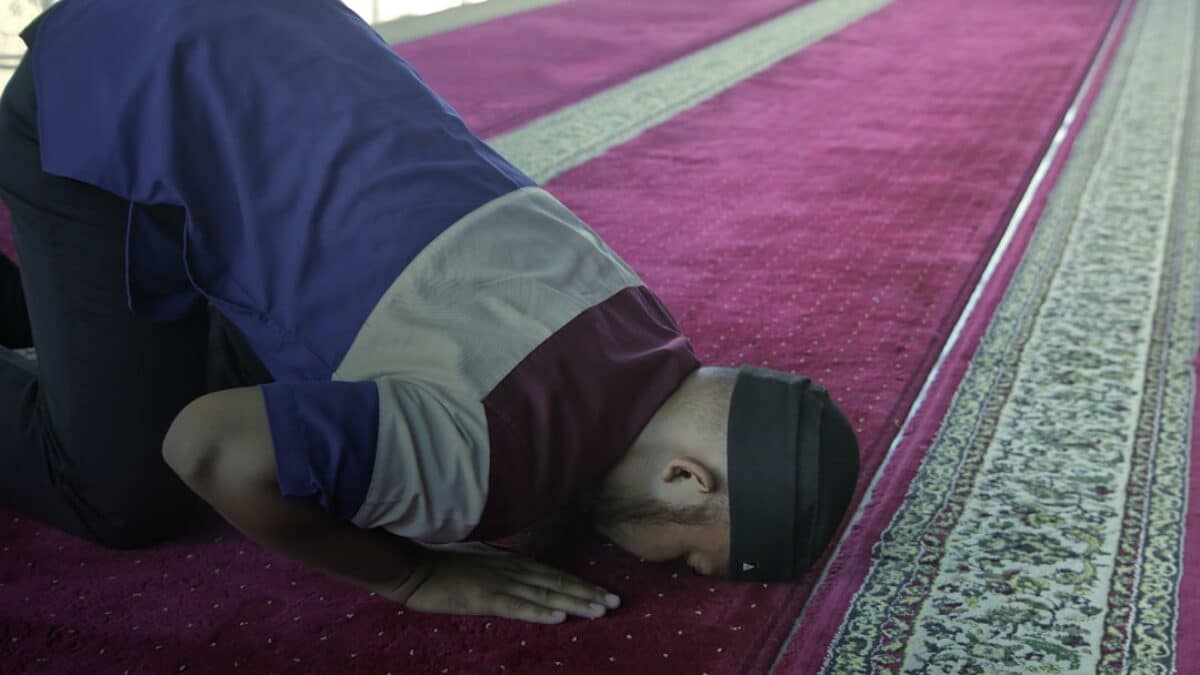The moment a Muslim completes the five obligatory prayers, something profound has already been accomplished—the foundational pillar of worship that defines daily life has been fulfilled. Yet, scattered like luminous pearls around this central duty lie voluntary prayers known as Sunnah prayers. These are not mere embellishments; they are spiritual lifelines that transform routine ritual into a living dialogue with the Divine. While the farāʾiḍ (obligatory acts) ensure basic spiritual survival, the Sunnah prayers elevate the believer from mere subsistence to superlative excellence. They are the quiet, often unseen bridge between the minimum requirements of faith and the maximum potential of human-divine connection.
Understanding Sunnah Prayers
Definition and Classification
The Arabic term “Sunnah” refers to the normative practice of Prophet Muḥammad ﷺ, encompassing his sayings, actions, and tacit approvals. In the context of ṣalāh, Sunnah prayers are voluntary acts of worship that the Prophet performed consistently and strongly encouraged his followers to adopt. Scholars classify them into two primary categories:
- Mu’akkadah (Emphasized): Prayers the Prophet rarely omitted, such as the two rakʿahs before Fajr and the Witr prayer.
- Ghayr Mu’akkadah (Non-Emphasized): Occasional voluntary prayers, like the four rakʿahs before ʿAṣr, which the Prophet sometimes performed and sometimes left.
Additionally, Nafl (supererogatory) prayers are voluntary acts beyond the Sunnah, such as the mid-morning Ḍuḥā prayer or the Tahajjud performed in the last third of the night.
Historical Context and Prophetic Tradition
The seerah (biography of the Prophet) reveals that Muḥammad ﷺ was “a man of prayer” even before revelation. After Prophethood, his voluntary prayers intensified. ʿĀʾishah (raḍiya Allāhu ʿanhā) narrated that he would stand so long at night that his feet would swell. When asked why he exerted himself despite having past and future sins forgiven, he replied, “Should I not be a thankful servant?” (Bukhārī). This establishes a paradigm: Sunnah prayers are not guilt-driven but gratitude-driven.
Key Components of Sunnah Prayers
Types and Timings
Sunnah prayers are meticulously woven into the fabric of daily life. Below is a structured breakdown:
| Category | Specific Sunnah Prayers | Rakʿahs | Timing |
|---|---|---|---|
| Associated (Rawātib) | Before Fajr | 2 | Before dawn prayer |
| Before Ḍuhr | 4 or 2 | After sun’s zenith | |
| After Ḍuhr | 2 | Immediately after obligatory prayer | |
| After Maghrib | 2 | Immediately after sunset prayer | |
| After ʿIshāʾ | 2 | Immediately after night prayer | |
| Witr | Witr | 1, 3, 5, etc. | After ʿIshāʾ until Fajr |
| Nafl | Ḍuḥā | 2-8 | Morning after sunrise |
| Tahajjud | 2+ | Last third of night |
Spiritual Mechanics
Each Sunnah prayer operates as a microcosm of prophetic spirituality. The qiyām (standing) embodies steadfastness, the rukūʿ (bowing) humility, and the sujūd (prostration) ultimate surrender. Unlike obligatory prayers, which follow strict timings, Sunnah prayers offer elasticity—a believer can adapt them to personal capacity. This flexibility is not leniency but mercy, ensuring that worship remains sustainable across diverse life circumstances.
Benefits and Importance
Spiritual Elevation
The Qurʾādeclares, “And establish prayer for My remembrance” (Ṭā-Hā 20:14). While the farḍ prayers fulfill this command, Sunnah prayers amplify remembrance. They create spiritual “buffer zones” around obligatory prayers, insulating the heart from worldly distractions. A practical example: a professional who adds the two Sunnah rakʿahs after Ḍuhr finds that the transition from workplace stress to spiritual focus is smoothed, making the obligatory prayer more meaningful.
Moral Rectification
Voluntary prayers act as auto-correction mechanisms. The Prophet said, “The first matter for which a servant will be brought to account is prayer. If it is sound, all deeds are sound; if deficient, all deeds are deficient” (Tirmidhī). Sunnah prayers plug gaps in obligatory prayers—perhaps a rushed Fajr is compensated by the deliberate Sunnah rakʿahs. Over time, this habitual mindfulness seeps into character, reducing backbiting, envy, and anger.
Social and Communal Impact
When a community collectively adopts Sunnah prayers, spiritual synergy emerges. Consider the Ramadan nightly prayers (Taraweeh): though technically Nafl, their performance in congregation fosters unity. Mosques overflow, neighbors bond over shared meals before night prayers, and children absorb living Islam. This communal dimension extends beyond Ramadan; a neighborhood where residents regularly attend the post-Maghrib Sunnah prayers develops mutual support networks—elderly are assisted, youth are mentored, and new Muslims find belonging.
Eschatological Rewards
The Prophet promised the “house in Paradise” for those who consistently pray the twelve daily rawātib Sunnahs (Tirmidhī). This is not materialistic bribery but divine generosity—a metaphor for the spiritual architecture built through voluntary worship. Each rakʿah is a brick; persistence constructs a fortress against the trials of the Hereafter.
Practical Applications
Building a Sustainable Routine
Transitioning from occasional to consistent Sunnah prayers requires strategic planning:
- Start Small: Begin with the two pre-Fajr rakʿahs. Their brevity makes them manageable.
- Link Triggers: Attach Sunnah prayers to existing habits—e.g., after brushing teeth for Maghrib, immediately perform the two Sunnah rakʿahs.
- Track Progress: Use a prayer journal or app to mark daily Sunnah completions. Visual progress motivates.
- Seek Accountability: Partner with a family member or friend to share goals and celebrate milestones.
Overcoming Common Obstacles
Time Constraints
A working mother might despair at adding extra prayers. The solution? Integrate, don’t add. While toddlers nap, she can perform the Ḍuḥā prayer. The post-ʿIshāʾ Sunnahs can be combined with bedtime routines.
Lack of Concentration
Modern distractions—phones, notifications—shatter focus. Create a prayer sanctuary: a quiet corner with minimal furnishings, a prayer mat facing qibla, and a phone on airplane mode. Even 30 seconds of duʿāʾ before starting Sunnah prayers can reset mental space.
Discouragement from Past Neglect
The Prophet taught, “If you were to commit sins until your sins reach the heaven, then you were to repent, Allah would accept your repentance” (Tirmidhī). Apply this to Sunnah prayers: there is no expiration date on starting anew. Begin today, regardless of yesterday’s lapses.
Advanced Practices
For those seeking deeper engagement:
- Tahajjud Mastery: Wake 20 minutes before suḥūr. Start with two rakʿahs, reciting short sūrahs like al-Ikhlāṣ with deliberate reflection.
- Ḍuḥā Consistency: Set a daily phone alarm 45 minutes after sunrise. Use the time to recite SubḥāAllāh wa bi ḥamdihi 100 times between each rakʿah.
- Open Witr: Instead of rushing through three rakʿahs, elongate the final rukuʿ and sujūd. The Prophet would recite Qul yā ayyuha-l-kāfirū in the first rakʿah and Qul huwa Allāhu ahad in the second, followed by Qunūt supplication.
Frequently Asked Questions
What is the difference between Sunnah and Nafl prayers?
While both are voluntary, Sunnah prayers are tied to prophetic consistency. The Prophet rarely omitted emphasized Sunnahs, making them near-obligatory for the devout. Nafl prayers are broader—they include mustaḥabb (recommended) acts like the four rakʿahs before ʿAṣr, which the Prophet performed sporadically. Think of Sunnah as the Prophet’s routine and Nafl as his occasional extras.
Can I combine Sunnah prayers if I’m extremely busy?
Flexibility exists. If traveling, the two Sunnah rakʿahs after Maghrib can be shortened to one. If severely pressed, combine intentions—e.g., perform two rakʿahs with the dual intention of Ḍuḥā and making up missed Sunnahs. However, consistency is key; avoid habitual skipping.
Are women exempt from Sunnah prayers during menstruation?
During menstruation or post-natal bleeding, women are completely exempt from all prayers, including Sunnah. No makeup is required after purification. This is mercy, not injustice—Allah’s law accommodates biological realities.
How do I stay motivated when no one around me prays Sunnah?
Anchor to prophetic legacy. The Prophet prayed alone in Makkah for 13 years, yet his Sunnah prayers were never compromised. Join online prayer groups, listen to lectures on Sunnah benefits, or place motivational quotes near prayer areas. Remember: you’re never truly alone—angels surround the believer in prayer.
Is it permissible to pray Sunnah while traveling?
Yes, with adjustments. The Prophet would shorten Sunnah prayers during travel—e.g., two instead of four rakʿahs before Ḍuhr. If time is scarce, prioritize Witr as it’s the most emphasized Sunnah. Use travel as an opportunity to pray Nafl in unique locations—e.g., a quiet airport lounge becomes a mobile masjid.
What if I can’t remember how many
























Post Comment